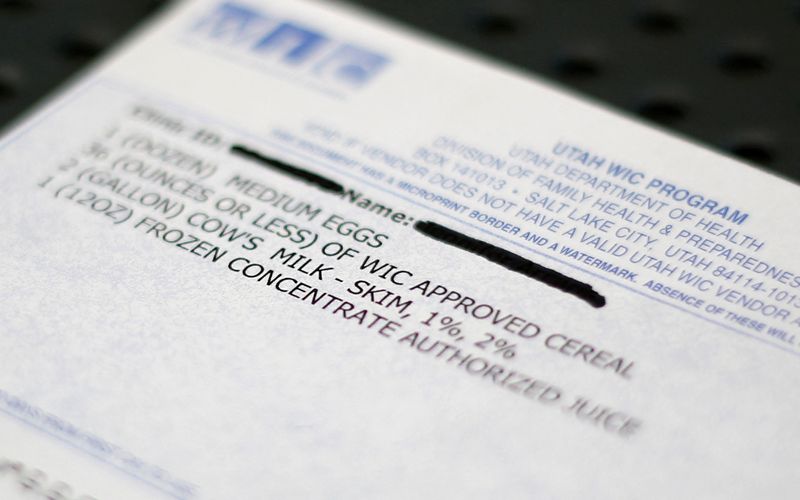By Leah Douglas
WASHINGTON (Reuters) - The U.S. Congress must raise spending on a food assistance program for low-income women and children or 2 million could be turned away this year, Biden administration officials said on Thursday.
A bitterly divided Congress has for months failed to reach agreement on 2024 government spending levels and is racing to avert a partial shutdown on Jan. 19.
An eventual deal should include $1 billion more for the Special Supplemental Nutrition Program for Women, Infants, and Children (WIC), said Agriculture Secretary Tom Vilsack and White House Domestic Policy Council Director Neera Tanden on a call with reporters.
The program, which had a budget of $6 billion last year, is facing a shortfall due to rising food costs and higher participation.
The funding gap could result in as many as 2 million people being turned away from the program this year, according to a December analysis by the nonpartisan Center on Budget and Policy Priorities.
"The longer Congress puts off fully funding WIC, the greater the risk grows to moms, babies and children who need and are seeking nutrition and health support from the program," Vilsack said.
WIC provides food, nutrition education and healthcare referrals to about 6.7 million low-income people each year including about half of all infants born in the U.S., according to the Department of Agriculture, which administers the program.
A stopgap federal funding bill in November that narrowly averted a government shutdown extended some nutrition programs until Sept. 30, but not WIC.

If Congress does not raise spending levels, states would have to put applicants on wait lists, said Paul Throne, WIC director for Washington State, on the call.
"We’re struggling to understand how we’re going to continue to serve the people who need us," Throne said. "We have not had waiting lists in Washington State for at least 30 years."